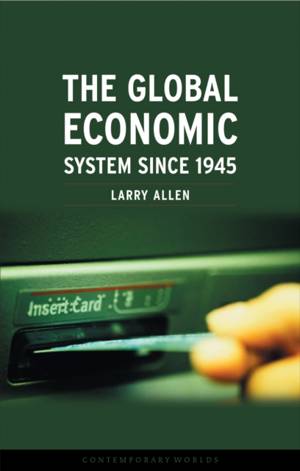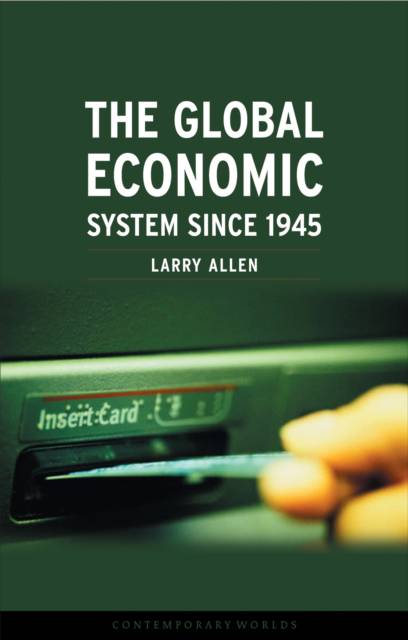
- Retrait gratuit dans votre magasin Club
- 7.000.000 titres dans notre catalogue
- Payer en toute sécurité
- Toujours un magasin près de chez vous
- Retrait gratuit dans votre magasin Club
- 7.000.0000 titres dans notre catalogue
- Payer en toute sécurité
- Toujours un magasin près de chez vous
20,95 €
+ 41 points
Description
The strictly mathematical foundation of conventional economic theories has resulted in circumscribed analyses of world economic history. Larry Allen's groundbreaking The Global Economic System since 1945, in contrast, re-evaluates world economic history in a context that recognizes and avoids the inherent limitations of mathematical models. The Global Economic System since 1945 does not shun economic theory, but rather uses it as a tool to reassess recent world economic history. Allen describes how, starting at the end of World War Two, powerful corporations lobbied governments in an effort to reduce the perceived constraints of regulation. In the past twenty-five years these voices have grown increasingly influential, as governments worldwide adopted free-market policies, reduced economic regulation, and promoted the virtues of free-market capitalism. The Global Economic System since 1945 presents a fresh and wide-ranging synthesis of economic history and theory that will be valuable to both scholars and curious participants in today's global economy.
Spécifications
Parties prenantes
- Auteur(s) :
- Editeur:
Contenu
- Nombre de pages :
- 224
- Langue:
- Anglais
- Collection :
Caractéristiques
- EAN:
- 9781861892423
- Date de parution :
- 05-03-04
- Format:
- Livre broché
- Format numérique:
- Trade paperback (VS)
- Dimensions :
- 140 mm x 218 mm
- Poids :
- 294 g

Les avis
Nous publions uniquement les avis qui respectent les conditions requises. Consultez nos conditions pour les avis.






